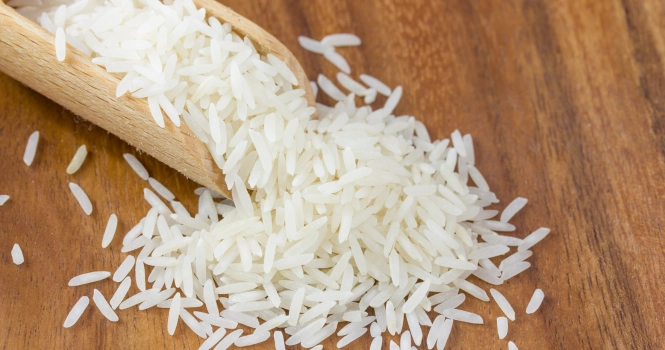Exploring the Disadvantages of Eating Basmati Rice Every Day

Basmati rice, with its delightful aroma and long, slender grains, is a cherished staple in many cuisines, particularly in South Asian dishes. Renowned for its distinctive nutty flavor and fluffy texture when cooked, basmati rice complements a wide array of culinary creations.
However, like any food, consuming basmati rice in excess, especially on a daily basis, may come with certain disadvantages.
Let’s look into the potential downsides of incorporating basmati rice into your daily diet.
Glycemic Index Concerns
Basmati rice, particularly the white variety, has a medium to high glycemic index (GI), which measures how quickly foods raise blood sugar levels after eating.
Regular consumption of high-GI foods can lead to fluctuations in blood sugar levels, which might not be ideal for individuals managing diabetes or those at risk of developing the condition. It’s important to balance your diet with low-GI foods to maintain stable blood sugar levels.
Nutrient Density
While basmati rice does provide some nutritional benefits, including small amounts of protein and minimal fat, it’s relatively low in fiber, vitamins, and minerals compared to whole grains.
Daily consumption might lead to missed opportunities to consume more nutrient-dense foods, such as brown rice, quinoa, or other whole grains, which offer higher fiber content and a broader spectrum of nutrients essential for optimal health.
Caloric Considerations
Rice, including basmati, is calorie-dense, which means it can contribute significantly to your daily caloric intake. Consuming large portions of basmati rice regularly could potentially lead to excess calorie consumption, posing a challenge for weight management or contributing to weight gain, especially if not balanced with adequate physical activity.
Pesticide Residue
Depending on the source and farming practices, some basmati rice might contain pesticide residues. Over time, regular consumption of foods with pesticide residues can contribute to a buildup of these chemicals in the body, potentially leading to health risks. Opting for organic basmati rice when possible can help minimize this concern.
Arsenic Content
Rice plants have a natural tendency to absorb arsenic more readily than other crops. Consuming rice daily, including basmati rice, could lead to higher intake of arsenic, a toxic element linked to various health issues over long-term exposure. Diversifying your grain consumption and rinsing rice thoroughly before cooking can help reduce arsenic levels.
Environmental Impact
The cultivation of basmati rice, particularly in regions facing water scarcity, can have significant environmental implications due to its high water demand. Being mindful of the environmental impact and sourcing rice from sustainable farming practices can contribute to more responsible consumption.
While basmati rice is an aromatic and flavorful addition to meals, mindful consumption is key to maintaining a balanced and healthy diet.
Considering the glycemic index, nutrient density, caloric content, and potential contaminants, it’s beneficial to vary your grain intake and not rely solely on basmati rice for your daily carbohydrate source.
Incorporating a variety of grains and whole foods into your diet ensures a broader intake of essential nutrients while minimizing potential health and environmental downsides.












